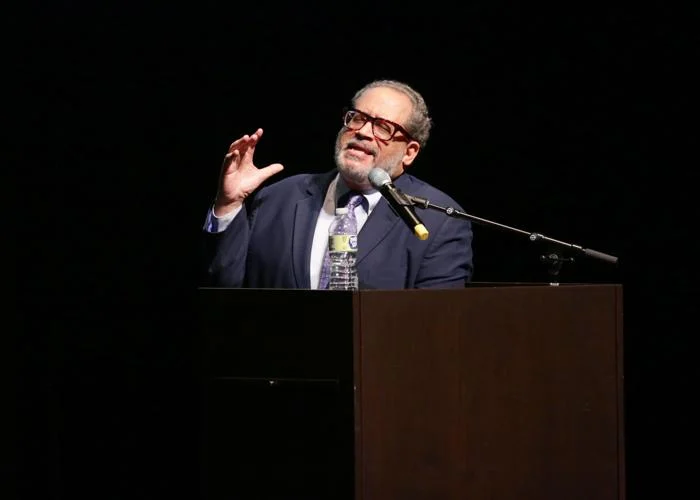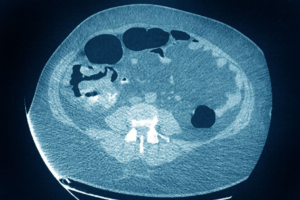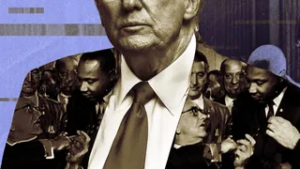To have true reconciliation and justice, the United States and its citizens have to be educated on even the “uncomfortable” topics of race in U.S. history, said Michael Eric Dyson, the keynote speaker at the 2022 John Hope Franklin National Reconciliation in America Symposium.
Focusing on recent education issues, like book banning and so-called “anti-CRT” legislation across the country, Dyson led Wednesday evening’s public community event on the University of Tulsa campus in a spirited speech on how America can reach true reconciliation and unity through education.
“There can be no reconciliation without justice, without reparations, without restitution and without confronting the vicious impediments and obstacles that continue to prevent the flourishing of communities,” Dyson said to start his speech.
Check out our latest digital-only offer and subscribe now
“We talk about those survivors of those heinous acts that happened in ‘21 a century ago, and it is not simply about pointing fingers. It is about acknowledging the pain, because America is caught up in denial right now.”
Reconciliation is a means to a greater future and a means to an end to injustice, Dyson said.
Thinking of education as reconciliation is critical to achieving that end to injustice, he said. Reconciliation is about bringing all people together after systemic separation, but for America to achieve that unity, it has to be honest about what caused the separation.
“In order to do that, education is critical, but do you really want to be educated?” Dyson said. “Jesus looks at the man who’s begging to be healed, and he says, ‘Do you really want to be well?’ Do we (the U.S.) really want to be educated?
“I look around, and we’re banning books. We’re banning Martin Luther King Jr. stories. We’re banning ‘The Bluest Eye’ by Toni Morrison. A certain segment of the population doesn’t want to be educated. We say ‘in America we love history’; we only love a certain kind of history.”
Dyson further questioned whether the U.S. truly wants to be educated on its past when that means making itself aware of its past ignorance and systemic racism.
But, with the amount of anti-critical race theory, or CRT, rhetoric used by conservatives today, Dyson said, any racial issue some people don’t want to talk about gets turned into “CRT” and is deemed not worth confronting.
“You don’t know the difference between CRT and ‘OPP’ (a rap song by Naughty by Nature),” Dyson said. “Here we are: We say we are interested in education, interested in making people aware, but we’re against critical race theory.”
Explaining critical race theory as an approach to viewing the American legal and government framework as systemically racist, Dyson, the centennial chair at Vanderbilt University, said the theory is mostly taught at the college level in legal and scholarly discussions.
“Ain’t nobody teaching critical race theory in fifth grade,” Dyson said. “But when they (conservatives and right-wing politicians) attack critical race theory and allow that to metastasize across the horizon of intellectual engagement, anything talking about race that they don’t like is made to be ‘critical race theory.’”
Topics like enslavement, Jim Crow Laws, even the 1921 Tulsa Race Massacre, Dyson said, are all under attack and threatened for removal from the teaching of history.
Any topic that can be seen as making “young white kids uncomfortable” is under the banner of critical race theory, but “education is about discomfort,” Dyson said.
He said he himself was made uncomfortable when confronted with his ignorance of history, but he said discomfort in education helps people learn what needs to change in society.
“Education is critical to reconciliation because you’ve got to know what you’re reconciling with and for and what was at stake,” he said. “And what was at stake was the history of inequality in the nation.
“Education is critical because it awakens us and makes us aware of our own bigotry and blindness.
“We will have reconciliation when we have truth and justice.”




